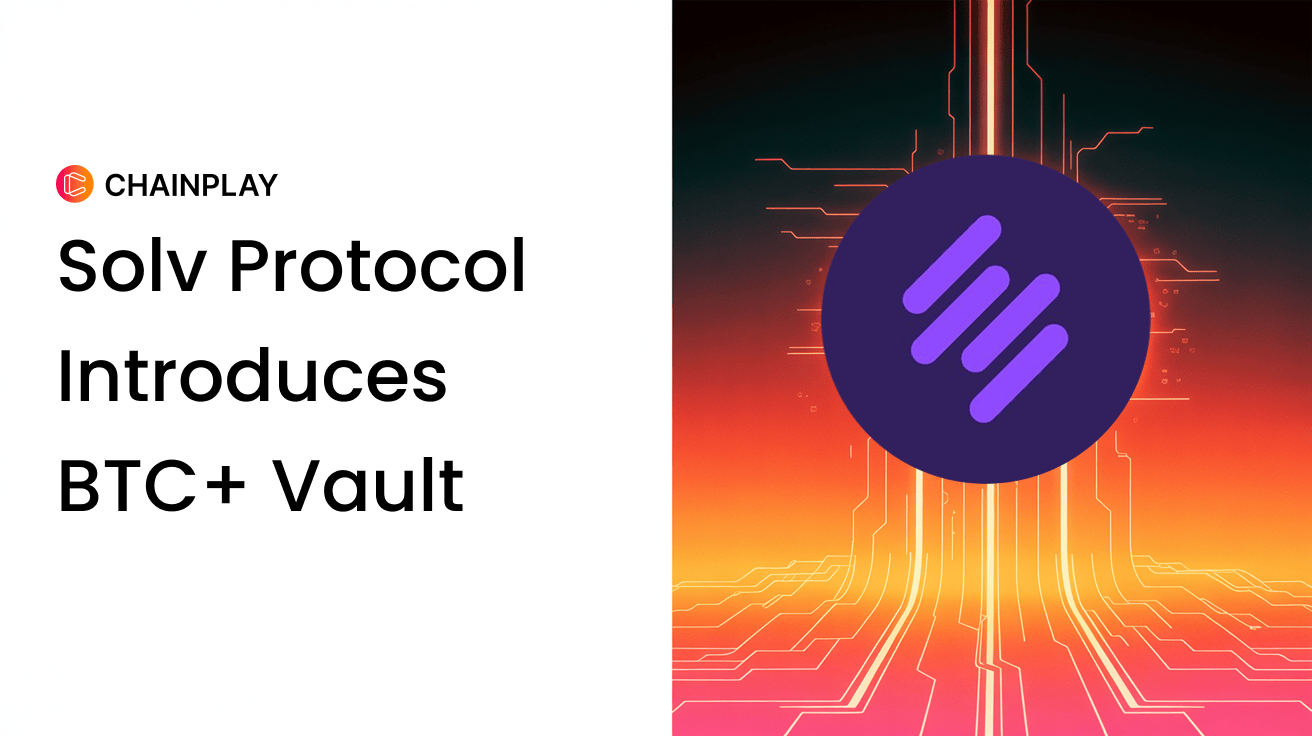News
BlackRock Pushes for In-Kind Redemptions in Ethereum ETF: What It Means for ETH
ChainPlay
•
2 months ago
Share :

BlackRock is making headlines again, this time with a strategic move that could reshape Ethereum investment products. The global asset management giant has filed an amendment to its Ethereum ETF application with the U.S. Securities and Exchange Commission (SEC). This amendment seeks approval for something called "in-kind redemptions."
It might sound technical, but it's a big deal for crypto investors, Ethereum holders, and the future of blockchain ETFs. Let’s break it down.
What Did BlackRock Do?
On May 9, 2025, BlackRock submitted a revised S-1 form to the SEC for its iShares Ethereum Trust (ticker: ETHA). The key update? The inclusion of in-kind creation and redemption processes.
This filing was first shared on X (formerly Twitter) by Bloomberg ETF analyst James Seyffart. He, along with fellow analyst Eric Balchunas, believes the SEC could greenlight this model sometime in 2025.
The SEC’s final decision deadline is set for November 10.
What Is In-Kind Redemption?
Traditionally, ETF shares are redeemed for cash. But in-kind redemption allows big players, known as authorised participants, to redeem their ETF shares for the underlying asset. In ETHA’s case, this would mean getting Ethereum instead of U.S. dollars.
This model is widely used in traditional finance and comes with some key benefits:
- Lower costs: fewer conversions and trading fees.
- Tax efficiency: reduces taxable events compared to cash redemptions.
- Operational simplicity: no need to sell Ethereum for cash during redemptions.
In crypto markets, where transaction fees can swing wildly and tax implications are complex, this is a major advantage.
Why Does It Matter for Ethereum?
If the SEC approves this model, ETHA would be the first Ethereum ETF in the U.S. with in-kind functionality. This could do several things:
- Boost Ethereum demand: In-kind redemptions would require actual ETH purchases for redemptions.
- Improve ETF efficiency: Lower costs might attract more institutional investors.
- Set a precedent: Other funds could follow, opening the door to more advanced crypto ETF structures.
This isn’t just about ETHA. It could influence how Ethereum and possibly other cryptocurrencies are adopted at the institutional level.
BlackRock Also Wants to Add Staking
In-kind redemptions aren’t the only thing BlackRock is pursuing. The company is also pushing to include staking as part of the ETF.
Robert Mitchnick, BlackRock’s head of digital assets, says staking is a key part of Ethereum’s value proposition. After Ethereum’s shift to proof-of-stake, holders can earn rewards by helping to secure the network.
But current ETFs don’t allow staking. That means investors miss out on this yield.
Mitchnick believes this reduces the appeal of Ethereum ETFs. He argues that investors should benefit from Ethereum’s full capabilities, not just its price movement.
Conversations with the SEC are ongoing. Some analysts think a decision on staking could come by October. Smaller updates might land as early as this summer.
If approved, ETHA could become the first staking-enabled Ethereum ETF.
ETHA’s Performance So Far
While regulatory processes unfold, ETHA’s market performance tells a story of growing investor interest.
On May 9, 2025, ETHA recorded $17.61 million in net inflows. It was the only Ethereum ETF to see positive flows that day, according to data from Sosovalue. That came after a $21.77 million outflow on May 7 and flat activity on May 8. Despite the ups and downs, May’s net inflow total stood at nearly $16 million by mid-month.
Zooming out, ETHA has attracted $4.2 billion in net inflows since launching in July 2024. As of May 9, the fund had $2.93 billion in net assets. It’s only had one month of net outflows, March 2025, when $200 million left the fund. Even in a volatile market, that’s a strong track record.
What’s Next?
The SEC now has two major decisions to make:
Allow in-kind redemptions for Ethereum ETFs or approve staking within these ETFs?
If both are approved, it could reshape how institutional investors approach Ethereum. It might also push other ETF providers to follow BlackRock’s lead.
More importantly, it would bring Ethereum ETFs much closer to capturing the true value of Ethereum as a network, not just its price.
Ethereum as an Institutional Asset
Ethereum isn’t just a cryptocurrency. It’s a platform. It powers smart contracts, DeFi, NFTs, and enterprise blockchain tools. Institutional investors increasingly recognize that Ethereum is not Bitcoin 2.0—it’s a different beast altogether.
Products like ETHA that capture Ethereum’s full functionality, including staking and in-kind redemptions, offer a more complete picture. That’s essential for long-term investors who want exposure to real utility, not just speculation.
Regulatory Landscape Still Unclear
Of course, all of this depends on U.S. regulators. Stablecoin legislation is still in flux. The GENIUS Act, which could provide clearer guidance for digital asset products, recently failed in the Senate. Political uncertainty around crypto remains high.
But there’s still hope. BlackRock's move suggests they see a regulatory opening. They’re not just applying pressure, they’re paving the way for a new kind of crypto ETF. With other financial giants watching closely, ETHA could become a template for future Ethereum investment products.
Final Thoughts
BlackRock’s latest ETF amendment is more than just paperwork. It signals a shift toward smarter, more flexible Ethereum products. It shows that institutional demand for crypto is evolving. And it places pressure on regulators to modernise their approach to digital assets.
If approved, in-kind redemptions and staking could turn ETHA into the gold standard of Ethereum ETFs. For Ethereum holders, this is bullish. For institutions, that’s appealing, and for the future of crypto finance, it’s a major step forward.
Share this article
#Other
Latest News

Spheron and Warden Protocol Launch Reward Campaign
15 hours ago

Solv Protocol Introduces BTC+ Vault for Automated Yield
15 hours ago

Sky Mavis Launches $400K Ronin Forge Innovation Grant
2 days ago

PEPETO, The Real PEPE Crypto Price Prediction: When
2 days ago

L3E7 Launches Season 0: First 3D Earth-Based Blockchain
2 days ago
Related articles

Sky Mavis, the team behind Axie Infinity and developer of the Ronin blockchain, has announced the Ronin Forge Innovation Grant.
ChainPlay
•
2 days ago

Solv Protocol, a DeFi platform pioneering a decentralized Bitcoin reserve, has announced the launch of BTC+, a structured yield vault for generating returns on institutional Bitcoin holdings. The new BTC+ vault launched by Solv seeks to earn profits on over a $1 trillion worth of Bitcoin lying idle.
ChainPlay
•
15 hours ago

Spheron teams up with Warden Protocol for a Galxe campaign, offering rewards, early access, and secure Web3 features before Warden’s beta launch.
ChainPlay
•
15 hours ago



